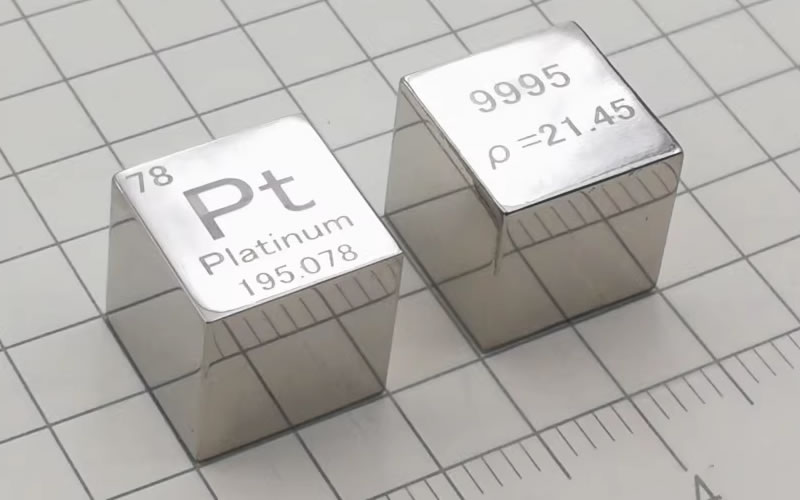Platinum - a metal that never fades or changes color
Platinum - a metal that never fades or changes color
Platinum reference price: 31668.49 USD/kg

In the early 18th century, C. Wood of England collected sandstone embedded with platinum particles in Cartagena, New Granada. In 1735, Ulia Della Torre Chiral of Spain discovered a hard to process metal, resembling silver, called Platinum in a gold mine near Pinto. The word comes from the Spanish word Platina, meaning silver. In 1748, Watson in England confirmed that this was a new element. Platinum is a transition metal with high density, ductility, silver white color, metallic luster, hardness of 4-4.5, and a relative density of 21.45. The high melting point is 1773 ℃. Rich in ductility, it can be drawn into very fine platinum wire and rolled into extremely thin platinum foil.
Platinum has extremely stable chemical properties, is insoluble in strong acids and alkalis, and does not oxidize in air. But the following substances can dissolve platinum: first, aqua regia (a mixture of nitric acid and hydrochloric acid in a ratio of 1:3 by volume); The second is alkali metal cyanide
Platinum is actually a naturally formed white precious metal, commonly known as platinum, pure platinum, regular platinum, or true platinum. It is one of the most valuable metals in the world. Initially, platinum was considered a type of low-quality silver commonly used for forging jewelry, but it was not until time passed that people realized the value of platinum. Platinum is naturally pure, precious and rare, and the most precious thing is that it never fades or changes color. Therefore, it is very popular as jewelry.
Important features: white, not affected by high temperatures, natural
Main producing countries: South Africa, Russia, Canada, and other mineral processing countries. Among them, South Africa is the country with the richest platinum resources in the world.
Important uses: Platinum, as a precious metal, is used in jewelry and many industrial applications, including fuel cells, dental work, electronic components, healthcare, glass, and petroleum. Laboratory equipment, anticancer drugs, hard drives, spark plugs, turbine engines, etc. all involve platinum.





